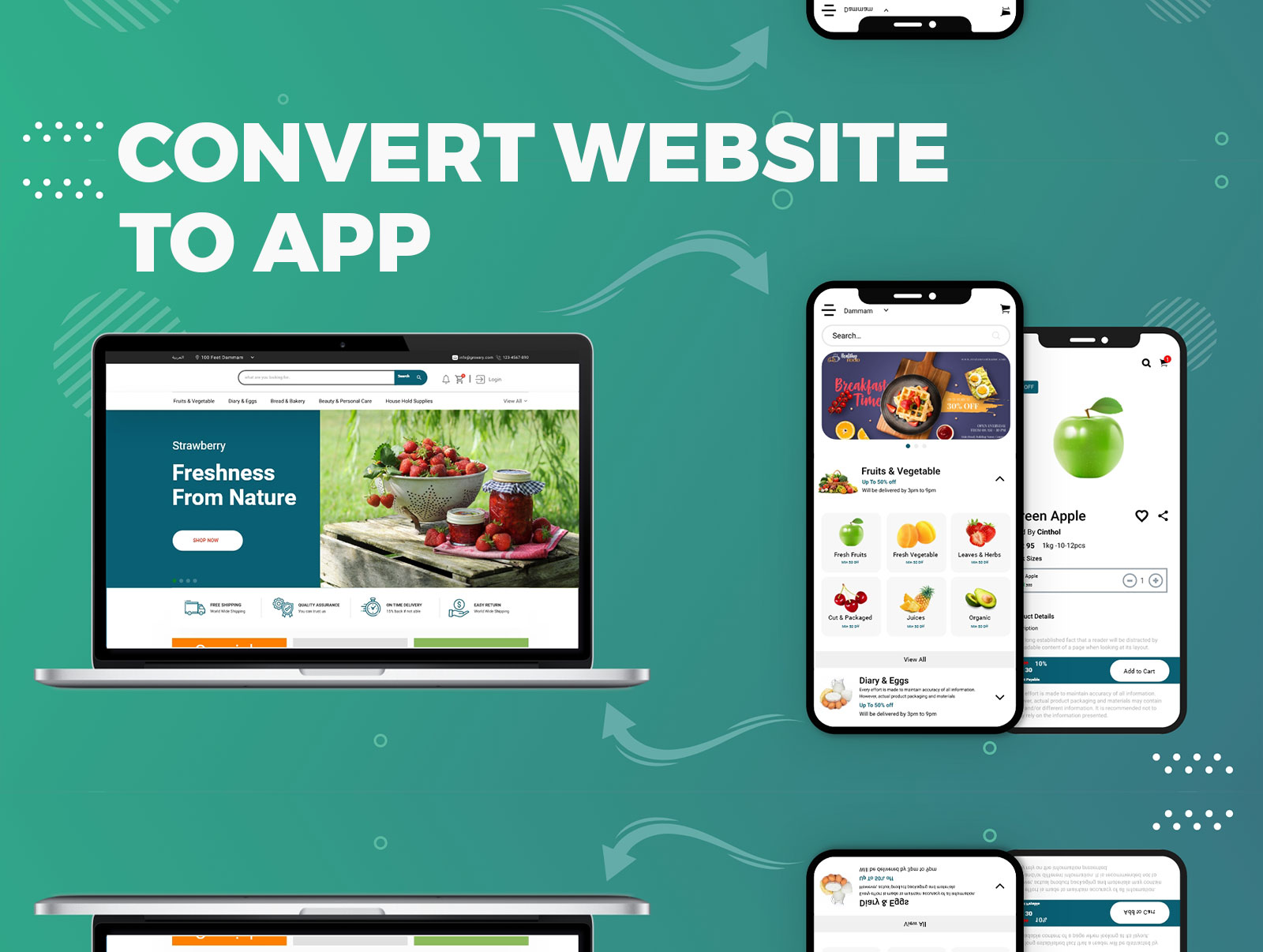How to Convert Your Website into a Mobile App in 2025


As mobile usage continues to outpace desktop browsing, businesses are recognizing the value of offering their users a seamless mobile experience. In 2025, converting a website to an app has become an essential step for many businesses looking to engage with their customers on a deeper level. Whether you want to provide better performance, personalized experiences, or streamline user interactions, converting your website to a mobile app can significantly enhance your business’s reach and user satisfaction.
In this article, we will explore the key steps involved in converting your website into a mobile app and why it’s a strategic move for businesses in 2025.
The rise of mobile-first experiences and increased usage of smartphones has made it clear that websites alone are no longer sufficient to meet consumer expectations. Here are some reasons why converting your website into a mobile app is a great business decision:
By converting your website into a mobile app, you unlock opportunities for user retention, brand loyalty, and better customer engagement.
When considering the conversion of your website to a mobile app, the first step is to select the right platform. There are several options for converting your site, depending on your business needs and budget:
Each platform has its advantages and trade-offs. Businesses must carefully evaluate their goals, budget, and target audience when choosing the most appropriate approach.
Before converting your website into a mobile app, assess which features and functions are essential for the app experience. Consider the following:
The user interface (UI) plays a pivotal role in the success of your app. Unlike a website, an app’s layout and navigation need to be optimized for small screens. Keep the following in mind:
Once you’ve evaluated your website and designed the user interface, it’s time to select an app development method. You can either:
For businesses looking for a cost-effective and faster solution, cross-platform development tools like Flutter or React Native can be used to build apps that work on both iOS and Android, reducing development costs and time.
Testing is a critical step in the app development process. Before launching the app, ensure it’s thoroughly tested on multiple devices to identify any potential bugs or issues with performance. Pay close attention to:
Once your app has been tested, you can submit it to the Apple App Store and Google Play Store for approval and release.
Just because your website is now a mobile app doesn’t mean you can forget about SEO. App Store Optimization (ASO) is just as important as traditional SEO, ensuring that your app ranks well in the app stores and is easily discoverable by users. Key strategies include:
The work doesn’t stop after your app is launched. To ensure its long-term success:
Converting your website into a mobile app in 2025 is an excellent way to meet the growing demand for mobile-friendly experiences. Whether you choose to develop a native app, hybrid app, or PWA, the key to success is aligning your app with your business goals, optimizing it for mobile devices, and providing an exceptional user experience.
If you’re looking for expert assistance in converting your website to a mobile app, Coding Freelancers can help. We specialize in app development and website-to-app conversions, ensuring that your business stays ahead of the curve with a seamless mobile experience.